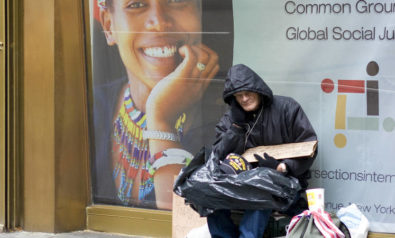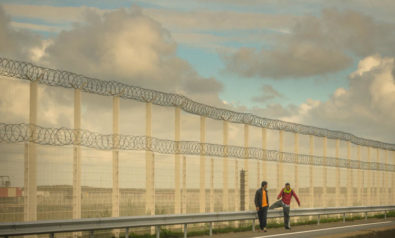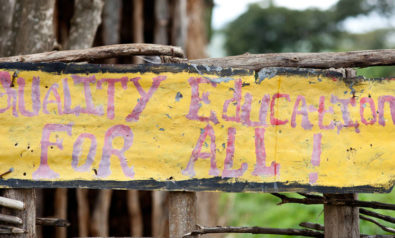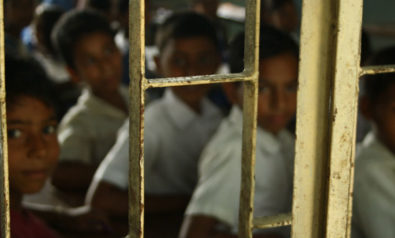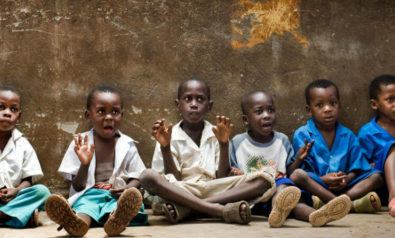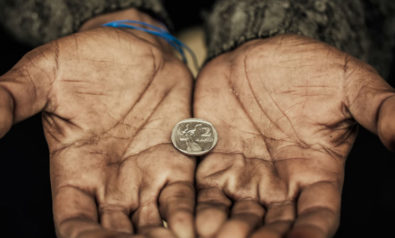Eliminating extreme poverty may seem like a challenge, but Goal 4 of the SDGs provides an achievable vision for the future.
In the era preceding the Millennium Development Goals (MDG), securing a seat in the classroom itself was a daunting task. During the 15-year timeframe mandated by the goal of achieving primary education for all children by 2015, the MDGs succeeded in reducing the number of out-of-school children from 100 million to 57 million, and increasing the primary school net enrollment rate from 83% to 91%.
Following the success of the MDGs in accomplishing basic benchmarks, the world stands at a crossroads. The minimum expectation for education is no longer based on solely increasing access to seats in a classroom. Instead, the successor of the MDGs, the Sustainable Development Goals (SDG), which were adopted by the United Nations General Assembly in September 2015, is to ensure “quality education” and, in the process, reduce extreme poverty. Goal 4 of the SDGs, or Global Goals, seeks to “ensure inclusive and equitable quality education and promote lifelong learning opportunities for all.”
Broad Targets
While establishing equitable access for children and youth is still a challenge in most developing countries, as seen by the fact that 42% of African school children will drop out of school prior to completion of their education, Goal 4 establishes a diversely broad array of targets, including the need for technical and vocational education; of tertiary education; of more inclusive learning environments; and of increasing the number of employed and entrepreneurial adults and youth.
By extending Goal 2 of the MDGs far beyond just the need for primary education, Goal 4 of the SDGs sets an ambitious standard for improvement in international education policy.
Moreover, its focus on increasing the knowledge and skillsets of learners to promote sustainable development reflects the Global Goals’ desire to remain a part of the development agenda far beyond their 2030 expiration date. By seeking to foster a culture of understanding surrounding their motivations, the SDGs will increase the urgency of the global citizenry to raise their expectations of education.
The updated development agenda will challenge perceptions and demand classrooms that boast well-trained educators, ample school supplies, funding for extracurricular activities and students who are eager to learn. Promoting the expectation of education at the secondary and tertiary levels will help youth from underprivileged backgrounds to believe that education can be an achievable part of their future.
Future Hopes
In turn, young people will begin to view education as a direct tool for their employment and lifestyle stability. Moreover, education can promote gender equality, with child marriage potentially dropping by 64% globally if girls had the right to a secondary education. One extra year of schooling increases a woman’s income by 10% to 20%. Allowing children worldwide to have the opportunity to read and write will further contribute to a global culture of equitability.
The Global Goals demand a lot. Encompassing numerous topics and attempting to tackle complex problems, the SDGs are testament to development priorities that should be embraced, not forgotten, in the years following the MDGs.
Moreover, their broad scope should not serve as a deterrent, but as a call to action, especially in light of the fact that some goals—like Goal 4—are already in the process of being accomplished. Initiatives by agencies like the United Nations Development Programme in places like Mazmoom district in the Sennar state of Sudan have allowed for children in post-conflict areas to gain access to the classroom through construction of a primary school and community center.
In addition to providing priceless education to the Mazmoom district, the school has also allowed for peaceful integration of returning Sudanese who had previously fled, in addition to ex-fighters.
In countries like Kenya and Zambia, policymakers are actively thinking about ways to build more resilient and sustainable education systems through tracking previously unmonitored learning metrics, in order to better measure the quality of learning outcomes for students.
Eliminating extreme poverty may seem like an insurmountable challenge, but the branding of the Global Goals and their willingness to undertake enormous responsibility for global issues serve as foreshadowing for a future where no child would be left behind.
The views expressed in this article are the author’s own and do not necessarily reflect Fair Observer’s editorial policy.
Photo Credit: Riccardo Mayer / Shutterstock.com
 We bring you perspectives from around the world. Help us to inform and educate. Your donation is tax-deductible. Join over 400 people to become a donor or you could choose to be a sponsor.
We bring you perspectives from around the world. Help us to inform and educate. Your donation is tax-deductible. Join over 400 people to become a donor or you could choose to be a sponsor.
Support Fair Observer
We rely on your support for our independence, diversity and quality.
For more than 10 years, Fair Observer has been free, fair and independent. No billionaire owns us, no advertisers control us. We are a reader-supported nonprofit. Unlike many other publications, we keep our content free for readers regardless of where they live or whether they can afford to pay. We have no paywalls and no ads.
In the post-truth era of fake news, echo chambers and filter bubbles, we publish a plurality of perspectives from around the world. Anyone can publish with us, but everyone goes through a rigorous editorial process. So, you get fact-checked, well-reasoned content instead of noise.
We publish 2,500+ voices from 90+ countries. We also conduct education and training programs
on subjects ranging from digital media and journalism to writing and critical thinking. This
doesn’t come cheap. Servers, editors, trainers and web developers cost
money.
Please consider supporting us on a regular basis as a recurring donor or a
sustaining member.
Will you support FO’s journalism?
We rely on your support for our independence, diversity and quality.



